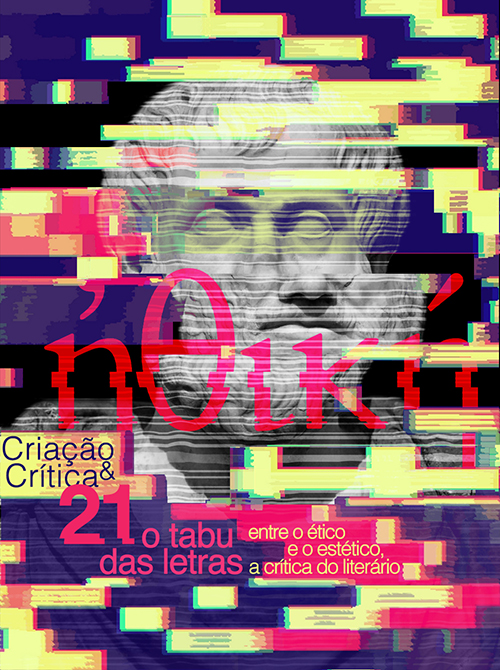The Trajectory of Leo Sammer in roberto Bolaño's 2666: Notes on ethics, autonomy and responsability
Notas sobre Ética, Autonomia e Responsabilidade
DOI:
https://doi.org/10.11606/issn.1984-1124.v0i21p1-15Keywords:
Ethics; Autonomy; Totalitarianism; Roberto BolañoAbstract
Roberto Bolaño’s novel 2666 introduces to the reader Leo Sammer, a nazi official who was in charge of the transportation of workers and supplies for the Reich. All of the sudden, Sammer receives by mistake a shipment of five hundred jews coming from Greece and a few days later the order to exterminate them. This episode and its ethical consequences yield the present article. First of all, Sammer is compared to Adolf Eichmann, a prominent member of the Nazi Party, in order to evaluate Sammer’s responsability and guilty in the context of the totalitarian regime. Secondly, the ethical orientation of Sammer is seen from the perspective of Ricoeur’s, Badiou’s and Lévinas’ respective ideas concerning the Self, the Other and the autonomy of of the individual facing the Evil. Finally, the article affirms that the ambivalente discourse of Sammer is in fact the repetition of the totalitarian pattern from which he persistently tries to detach himself.
Downloads
References
ARENDT, H. “Responsabilidade pessoal sob a ditadura”. In: ______. Responsabilidade e julgamento. Tradução de Rosaura Eichenberg. São Paulo: Companhia das Letras, 2004.
______. Eichmann em Jerusalém. Um relato sobre a banalidade do mal. Tradução de José Rubens Siqueira. São Paulo: Companhia das Letras, 1999.
BADIOU, A. Ética. Um ensaio sobre a consciência do Mal. Tradução de Antônio Trânsito e Ari Roitman. Rio de Janeiro: Relume-Dumará, 1995.
BOLAÑO, R. 2666. Tradução de Eduardo Brandão. São Paulo: Companhia das Letras, 2010.
______. “Discurso de Caracas”. In: BOLAÑO, Roberto. Entre paréntesis. Ensayos, artículos y discursos (1998-2003). Edición de Ignacio Echevarría. Barcelona: Editorial Anagrama, 2004.
HUSSERL, E. Meditações cartesianas. Introdução à fenomenologia. Tradução de Frank de Oliveira. São Paulo: Madras, 2001.
LÉVINAS, E. Humanismo do outro homem. Tradução de Pergentino S. Pivatto et alii. Petrópolis: Vozes, 2009.
MAFFESOLI, M. “Totalitarismo e indiferença”. In:______. A violência totalitária. Tradução de Maria Ludovina Figueiredo. Lisboa: Instituto Piaget, 2001.
MARISTAIN, M. Bolaño. A biography in conversations. Tradução inglesa de Kit Maude. Brooklyn, NY: Melville House, 2014.
ORWELL, G. 1984. Tradução de Alexandre Hubner e Heloisa Jahn. São Paulo: Companhia das Letras, 2009.
RICOEUR, P. O si-mesmo como outro. Tradução de Ivone C. Benedetti. São Paulo: Editora WMF Martins Fontes, 2014.
RORTY, R. “Ética sem obrigações universais”. In:______. Pragmatismo: a filosofia da criação e da mudança. Tradução de Cristina Magro e Antonio Marcos Pereira. Belo Horizonte: Editora da UFMG, 2000.
VIDAL-NAQUET, P. Os assassinos da memória: um Eichmann de papel e outros ensaios sobre o revisionismo. Tradução de Marina Appenzeller. Campinas: Papirus, 1988.
Downloads
Published
Issue
Section
License
Authors who publish with this journal agree to the following terms:
- Authors retain copyright and grant the journal right of first publication with the work simultaneously licensed under a Creative Commons Attribution License that allows others to share the work with an acknowledgment of the work's authorship and initial publication in this journal.
- Authors can enter into separate, additional contractual arrangements for the non-exclusive distribution of the journal's published version of the work (e.g., post it to an institutional repository or publish it in a book), with an acknowledgment of its initial publication in this journal.
- Authors are permitted and encouraged to post their work online (e.g., in institutional repositories or on their website) before and during the submission process, as it can lead to productive exchanges, as well as earlier and greater citation of published work (See The Effect of Open Access).



